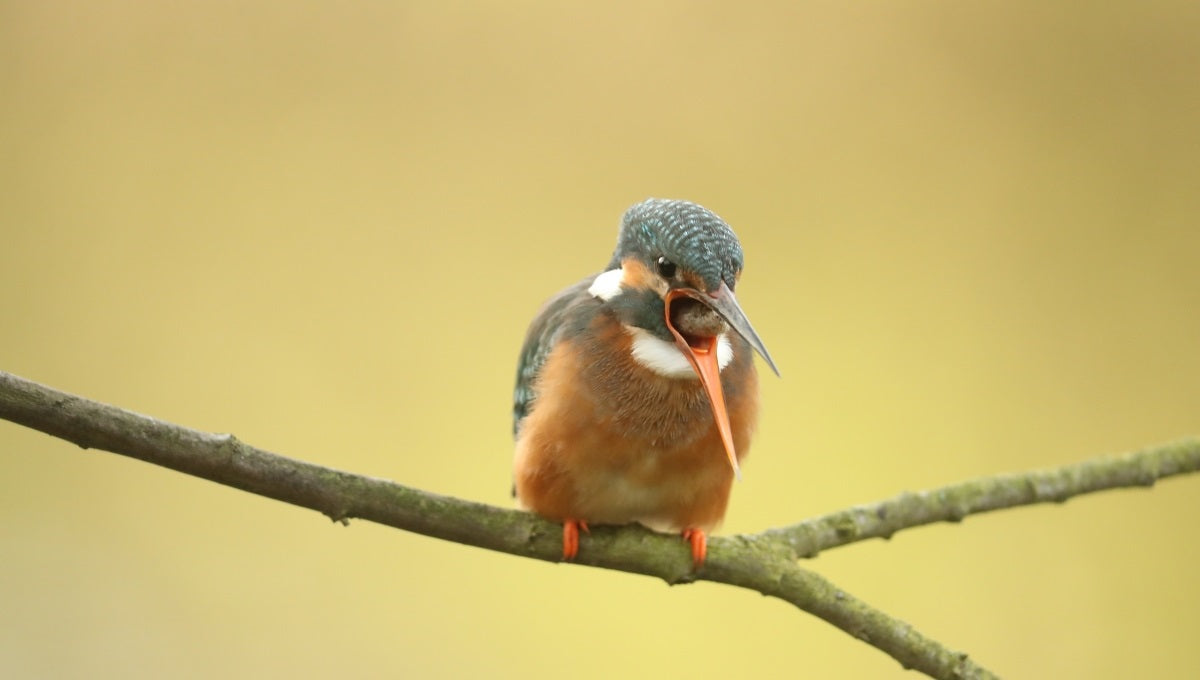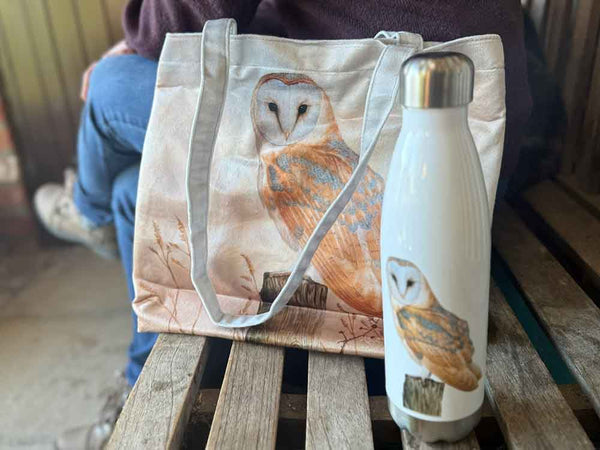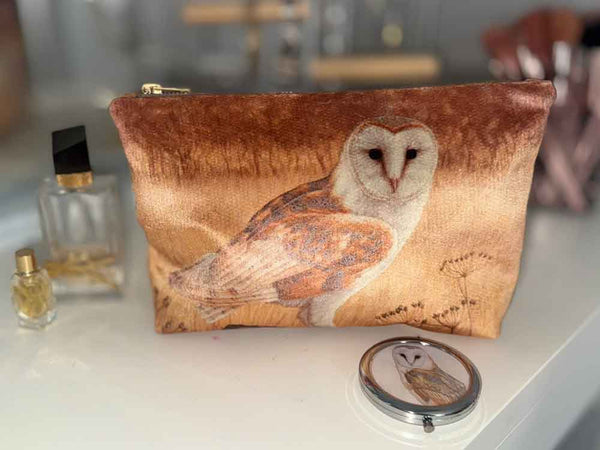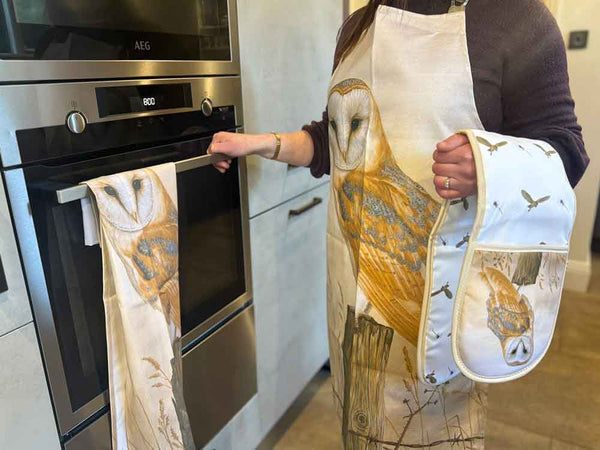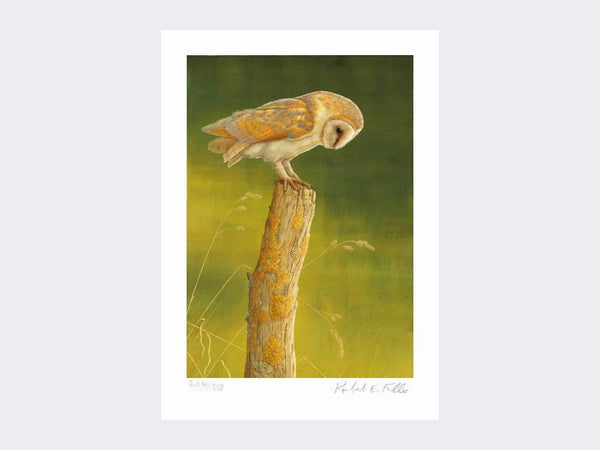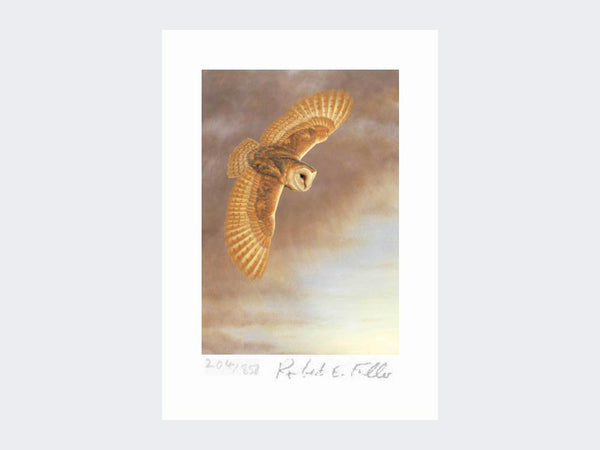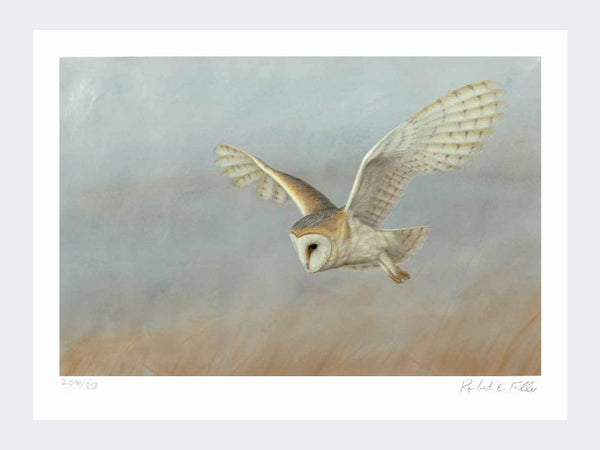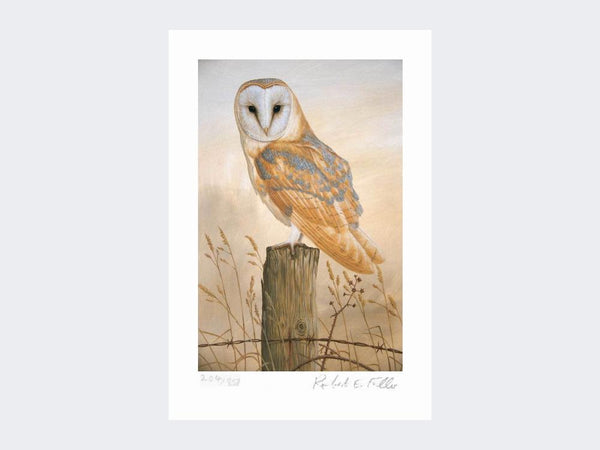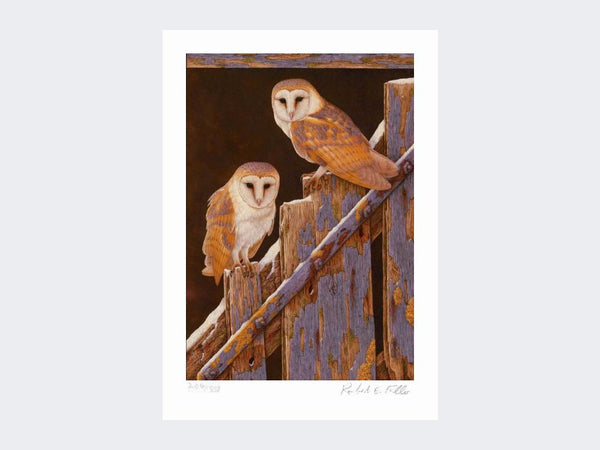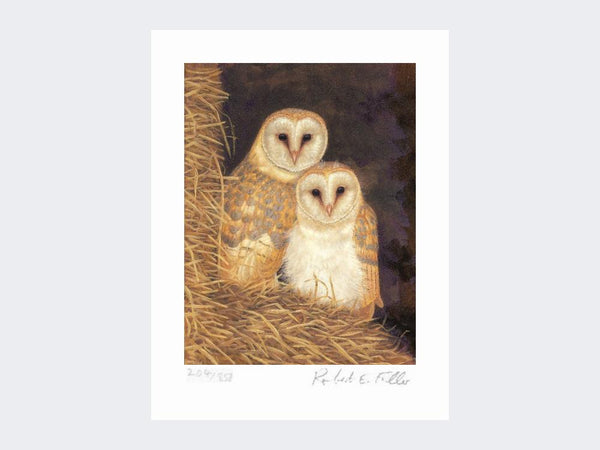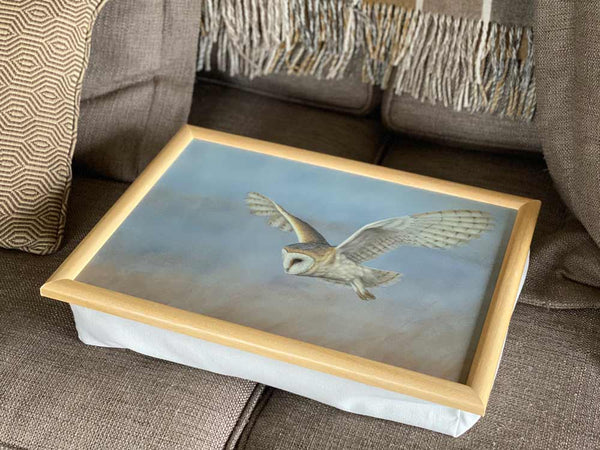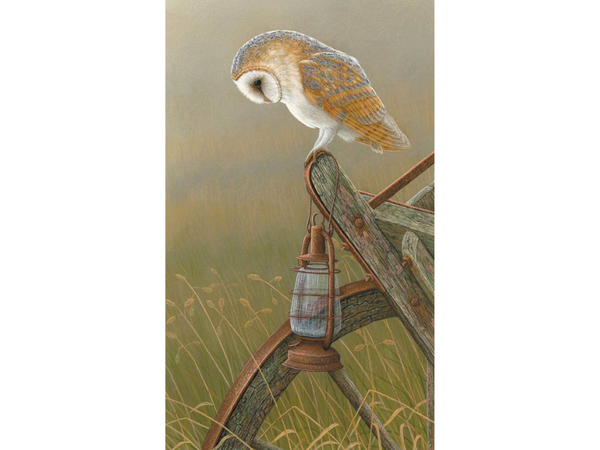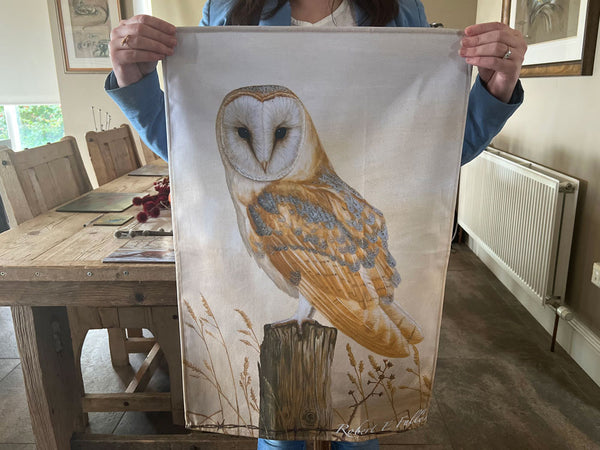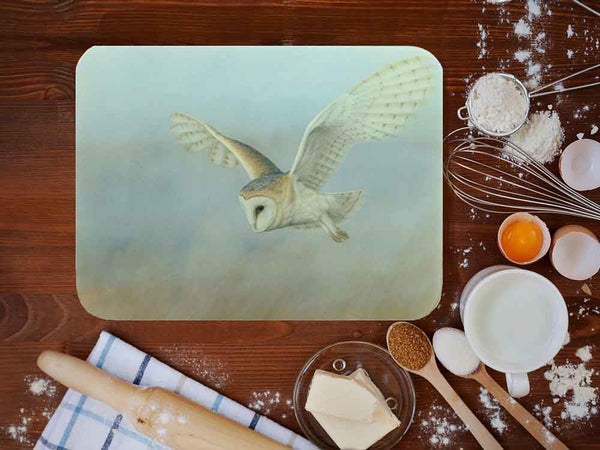The shelves in my art studio are littered with animal skulls, bones, and feathers. I collect these essentially because they help me to understand the underlying form of an animal when I come to paint it. But I also see them as fascinating treasure from the natural world and enjoy decorating my wildlife art studio with them! A large part of my collection is made up of tiny vole or wood mouse skulls dissected from bird pellets. Pellets are clumps of matted fur, feathers, bones, and skulls regurgitated by birds. Essentially, they contain anything the bird cannot digest – even seed husks.
Bird pellets
Bird species from kingfishers to corvids and herons cough up bird pellets, but they are a practice that birds of prey, especially barn owls, are particularly well known for. Interestingly, birds will bring up a pellet most days, sometimes twice a day, and the size of the pellet varies depending on the size of the bird.

Where to find bird pellets
You can find pellets inside or close to nests, as well as beneath the trees, rocks, or fence posts a bird has perched on. I have been known to head outdoors with a bucket to scoop up pellets for local school projects and before the breeding season begins I often clear great, matted, hardened clumps of pellets from my nest boxes to make them more comfortable for the birds I follow to nest in. I find dissecting these pellets fascinating as it gives me a snapshot of what the bird has recently eaten. And, when I open them up with tweezers, soaking them in water first, I get some unusual insights into their diets.
What's in a bird pellet
I have come across leveret bones and frog skulls in barn owl pellets before, the remains of a goat, and the wing bones of a gull in a white-tailed eagle pellet. The gull’s bones were alarmingly sharp – I would not want these stuck in my throat! And I’ve found grass inside a short-eared owl’s pellet - evidence of this bird of prey’s particular ‘grab and go’ hunting technique.
Owl pellets: unusual finds
Short-eared owls grasp prey from long grasses and swallow it whole because, if they don’t, they risk losing it to other birds of prey, mainly kestrels. This theft, known as kleptoparasitism, involves competitors literally snatching food right out of the talons of a short-eared owl and is a common problem for this species. In its haste, this owl must have also gobbled the grass stems that surrounded its prey. A few years ago, my daughter took some barn owl pellets to school and her class found a weasel skull inside one of the pellets. At first, they, incorrectly, identified it as a fox skull, which made me chuckle. But they were delighted when they discovered that it really was a rare find.
Dissecting owl pellets
I have a display in my newly re-opened gallery of the contents of just one barn owl pellet. This one pellet had inside it four vole skulls, three common shrew skulls, their fur, and bones. Although pellets look like rolls of poo, unlike feces, pellets have not been digested and so they do not have a smell nor do they carry disease. They do have a 'fusty' scent, but that is all. And little owl pellets are almost pretty because the wing cases of the beetles they eat make them shimmer.
Bird pellets provide nesting material
Pellets are useful to bird species that lay their eggs inside cavities. These birds will break up the pellets they cough up to line the floor of their nests with, digging a shallow scrape into the shredded balls when they are ready to lay a clutch of eggs. Owls do this, and kingfishers too.
Kingfisher pellets
Kingfisher pellets are roughly the size of a large peanut and are one of my favourites. Made up of individual tiny fish scales and fine fish bones, they are exceptionally fragile and fine.

Bird pellets mop up poo
And they have an extremely important function inside the kingfisher nest. This bird species digs tunnels into riverbanks to nest in and these underground chambers are inherently damp. There is also nowhere for faeces of the developing chicks to drain. And so their pellets play a vital role in keeping the nest clean because the shredded matter absorbs all the wet and smelly poo. In fact, a female kingfisher will not lay her eggs until she has built up a soft layer of pellets for them to rest on. The female uses her long sharp beak to shred them into a comfortable, soft nest. It seems it is only the female that does this, and she is very efficient about it. As soon as the male or a chick throws a pellet in the nest, she is there, deftly shredding the ball of bones into tiny pieces.

Owl pellet eco-System
Pellets also play a key role in supporting wider eco-systems. The pellets that fall on the floor of an owl nest also support insects and birds. For example, as the detritus of owl pellets builds up in an owl nest it will attract insects like flies, which in turn attract spiders which smaller birds then eat.
Of particular interest is the white-shouldered clothes moth, which lays up to 200 eggs at a time on the pellet of a bird of prey. The larvae that develop then eat the animal fur and feather inside the pellet. While many of these larvae will reach maturity, others become a life-saving food source for hungry birds over winter. I have watched tree creepers and wrens dig out larvae from the nest floor and eke out pupae from the crevices in the sides of my owl boxes. It’s amazing to see the circle of life that pellets provide.
Who would think that these ugly clumps of regurgitated bones and fur could hold such treasure?

